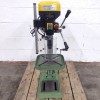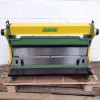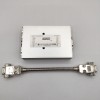
Why Teaching the Basics of Machine Tools Still Matters in an AI-Driven World
As artificial intelligence reshapes the landscape of engineering education, it’s tempting to assume that traditional skills like manual machining have taken a back seat. But for engineering lecturers, the challenge isn’t just keeping pace with technology; it’s ensuring students are grounded in the physical realities that underpin modern innovation.
Machine tools and machining fundamentals remain critically relevant. The components that drive AI (from robotic actuators to semiconductor fabrication equipment) are all rooted in precise manufacturing. While students can now simulate CNC paths or optimize designs with generative AI, they still benefit enormously from knowing how materials behave under real cutting forces, what tolerance stacking means in practice, or why tool chatter occurs.
Teaching the basics of machining equips future engineers with more than just a practical skillset - it develops intuition. Students who’ve handled a micrometer or trammed a mill come away with a visceral understanding of precision that CAD software alone can’t provide. This hands-on knowledge makes them better designers, collaborators, and problem-solvers in a multidisciplinary world.
In short, machining is not a relic of the past - it’s a language that connects theoretical engineering with applied outcomes. As educators, preserving and integrating this foundation ensures our graduates can not only work with AI, but build the physical world it relies on.
Here at Warco we believe fastidiously in the benefit of machining in the wider engineering landscape, and to that end we work with schools, colleges and universities to fit out machining workshops with a wide range of machine tools including lathes, mills, drills and much more. Our machines for education come with a 24-month guarantee and our friendly, technical support is second-to-none. We also provide ongoing support, including a dedicated Spares department to keep machines running for many years to come.





.jpg)




